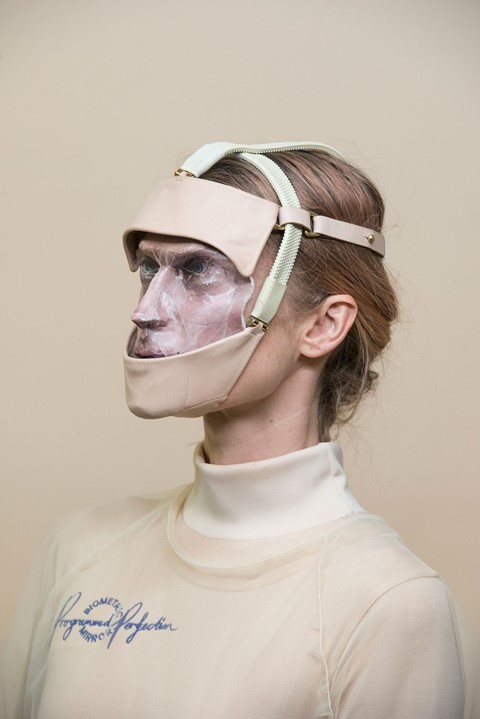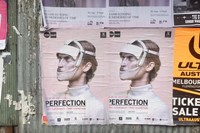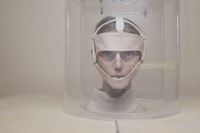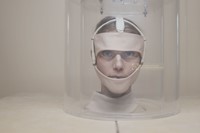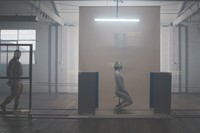Plastic surgery, artificial intelligence and the pursuit of perfection come together in science fiction artist Lucy McRae’s futuristic new work
Is beauty in the eye of the algorithm? This is the intriguing idea science fiction artist Lucy McRae explores in her latest project, which looks at the uncanny effects of artificial intelligence programmed for hyper-perfection. The Biometric Mirror Salon, an interactive installation on show in her native Australia, offers visitors a ‘digital facial’ that reimagines the face according to the laws of perfect symmetry. McRae’s dystopian beauty salon is part of Science Gallery Melbourne’s exhibition programme, Perfection, and marks her first foray into the world of AI.
To date, McRae’s work has questioned the limits of the body and biotechnology through speculative concepts such as swallowable perfume and edible human clones. In this space between art and science, she poses provocative questions about what it means to be human, both today and in the near future. “I was always very curious about science as a way of understanding myself,” she explains.
By engineering an extreme version of perfection, Biometric Mirror forces us to look closer at the beauty of our idiosyncrasies. The installation psychoanalyses consenting visitors and uses AI to subvert the Marquardt mask, a famous plastic surgeon’s formula used to measure the ‘perfect’ face. “I wonder whether technology is the reason why we even question the pursuit of perfection,” says McRae. The artist collaborated with scientists from the Research Centre for Social Natural User Interfaces to develop the work, which she sees as a platform to discuss the implications of emerging technologies. Below, she reflects on the project and the value of looking at science through the lens of art.
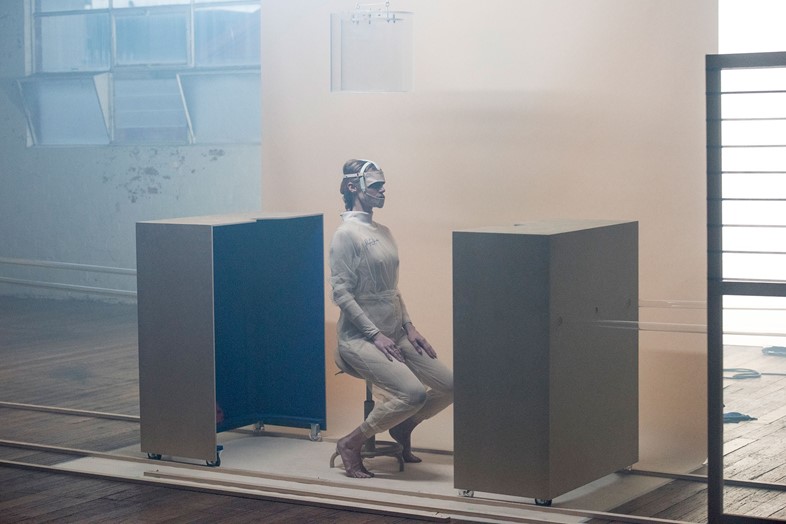
On the magic of imperfection…
“Science and technology are breaking our bodies down in order to build them back up again. I think this project, Biometric Mirror, is a really good example of how that can complicate our impressions of ourselves, and of beauty and perfection. I feel like science and technology are on a mission to remove fault, fear, failure – all the qualities that make us human. I’m trying to explore making more mistakes and failing, and expressing the vulnerable parts of ourselves, in order to activate the potential and magic that comes out of imperfection.”
On designing the experience…
“I came onto the project once the algorithm had already been invented, so to speak. Two scientists had developed this [facial recognition] technology, but it had a very clunky, unsexy interface. I suggested turning the algorithm into a digital beauty salon. For me, it was important that the interface was feminine and imperfect, and hopefully nothing like how an algorithm had been designed before. I had never designed a user experience or worked with AI, so it was new territory.”
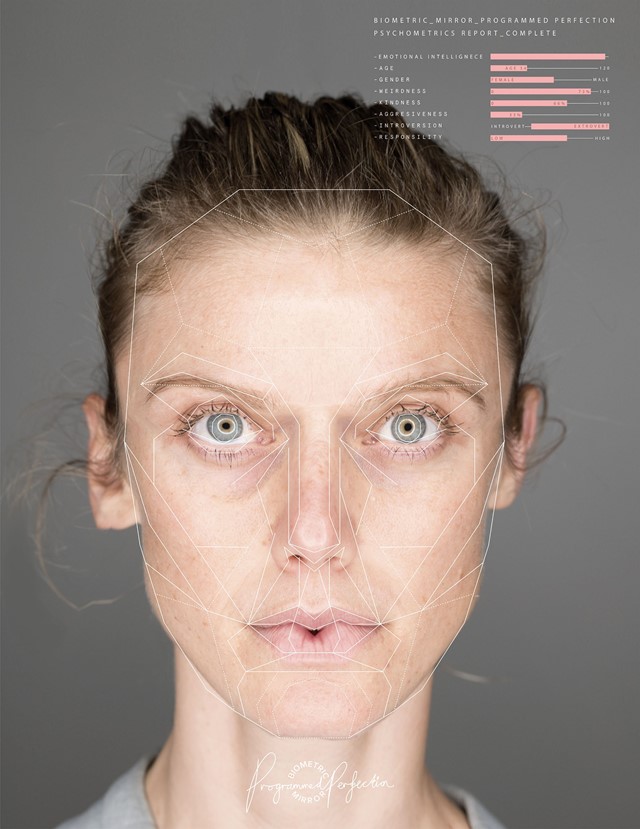
On the Marquardt mask...
“The Marquardt mask, which was invented by a Hollywood surgeon, is a mathematical grid of facial symmetry and is still used today by plastic surgeons throughout the world. The mask is based on a white male, but is used across every culture and ethnicity, which is terrifying. Biometric Mirror tracks your face in real-time, applies this Marquardt mask and animates your face to be perfectly symmetrical according to biostatistics. Your face morphs into this uncanny, alien creature, and if you line everyone’s results up, there’s no uniqueness or beauty.”
On looking at science through the lens of art…
“What I’m doing, I think, is using art as an opportunity to bring physical form to complex science. For example, if you think about genetic engineering, what does that even look like? I’m fortunate enough to collaborate with some of the world’s leading scientists and biologists, who value looking at science through the lens of art. I think it’s important to build fictions around how science and technology are slowly reconfiguring the body, and for the mainstream audience to be able to fathom these concepts.”
Perfection runs from September 12 until October 3, 2018 at Science Gallery, Melbourne.
